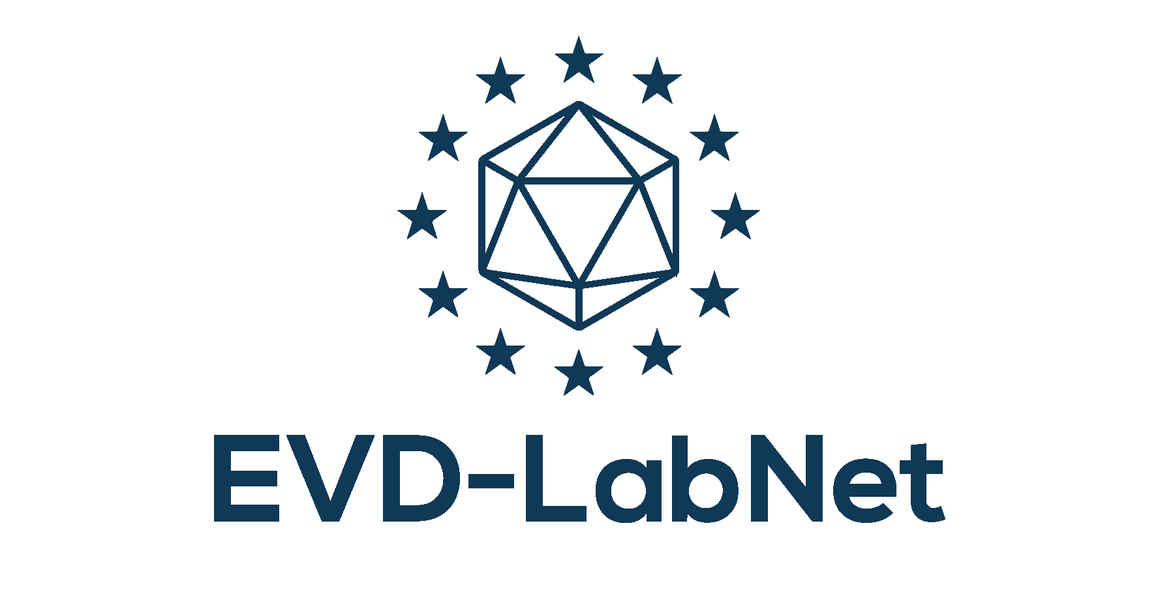Emerging Viral Diseases-Expert Laboratory Network (EVD-LabNet)

Aim and scope of the network
EVD-LabNet is a multi-disciplinary network of expert laboratories. Its aim is to strengthen Europe’s laboratory capacity and capability to respond to emerging, re-emerging and vector-borne viral disease threats.
The network laboratories are located in the EU/EEA and EU candidate countries. These laboratories have a strong basic and/or translation research competence in virology and human (reference) diagnostics and/or experience in diagnostic test development for viral pathogens.
The network is not currently accepting additional members but expressions of interest can be sent to EVD-LabNet secretariat. A list of EVD-LabNet laboratories is available.
Although EVD-LabNet has a strong focus on public health, the network embraces a One Health approach and has established strong links with the animal health sector in particular. EVD-LabNet also has connections to other European emerging infectious disease preparedness and response networks and activities.
EVD-LabNet directory
EVD-Labnet Dashboard
Overview of EVD-Labnet laboratories, focal points, their area of expertise and their diagnostic portfolio.
Target viruses
The network covers viruses significant to public health from the following genera (families):
- Alphavirus (Togaviridae)
- Coltivirus (Reoviridae)
- Ebolavirus (Filoviridae)
- Flavivirus (Flaviviridae)
- Henipavirus (Paramyxoviridae)
- Lyssavirus (Rhabdoviridae)
- Mammarenavirus (Arenaviridae)
- Marburgvirus (Filoviridae)
- Orbivirus (Reoviridae)
- Orthobornavirus (Bornaviridae)
- Orthobunyavirus (Peribunyaviridae)
- Orthohantavirus (Hantaviridae)
- Orthonairovirus (Nairoviridae)
- Orthorubulavirus (Paramyxoviridae)
- Orthopoxvirus (Poxviridae)
- Parapoxvirus (Poxviridae)
- Phlebovirus (Phenuiviridae)
- Thogotovirus (Orthomyxoviridae)
- Respirovirus (Paramyxoviridae)
- Vesiculovirus (Rhabdoviridae).
Objectives
EVD-LabNet supports clinical diagnostics, surveillance, threat assessments and outbreak preparedness and response by providing essential background information on target viruses, with a focus on:
- scientific expertise concerning the viruses, their make-up, pathogenesis, physicochemical properties, and patient- and population-oriented detection/ruling out of infection;
- (reference) diagnostics;
- state-of-the-art European diagnostic portfolio, diagnostic capacity and capability;
- molecular detection and characterisation support for response and surveillance activities;
- training courses, workshops and webinars for virologists (selected training/webinars will be open to public health epidemiologists);
- twinning activities (transnational education);
- annual meetings to strengthen the coherence of the network and provide a platform to exchange knowledge
Most activities are restricted to network members but some will be open to non-network members. Check the list of activities below and register for the newsletter to be informed.
Ongoing activities
External quality assessments (EQAs)
Two external quality assessments were conducted in 2022: on rodent-borne viruses and emerging alphaviruses. Results of the EQA will be communicated in due time.
A new EQA will be performed in 2023. Information will be communicated to network members during the spring.
Training courses and webinars
The webinar on Review of recent emerging and re-emerging virus outbreaks planned to take place on the 6 March has been rescheduled to the 20 March. ECDC and the EVD-LabNet team apologies for any inconvenience caused. Information on the event can be found here.
More trainings will be organised in 2023. Information will be communicated to network members during the spring.
Annual network meeting
The sixth annual network meeting will take place on 30-31 May 2023 in Padova, Italy.
Scientific support
Three factsheets have recently been published on ECDC website:
Newsletter
Governance
EVD-LabNet is coordinated by Dr Chantal Reusken from the Dutch National Institute for Public Health and the Environment (RIVM).
EVD-LabNet Management Team
The management team is responsible for the design and implementation of activities. The management team is composed of:
- Dr Chantal Reusken from RIVM (the Netherlands)
- Prof. Rémi Charrel from the University of Aix-Marseille (France, deputy coordinator)
- Dr Luisa Barzon from the University of Padova (Italy)
- Prof. Marion Koopmans from Erasmus MC (the Netherlands)
- Prof. Anna Papa from the Aristotle University of Thessaloniki (Greece)
- Prof. Olli Vapalahti from the University of Helsinki (Finland)
- Dr Tamas Bakonyi from ECDC
- Dr Céline Gossner from ECDC.
EVD-LabNet Scientific Advisory Board
The Scientific Advisory Board advises the management team on scientific aspects of the network activities. The board consists of the following representatives:
- Dr Chantal Reusken from RIVM (the Netherlands)
- Prof. Roger Hewson from London School of Hygiene & Tropical Medicine (United Kingdom)
- Dr Yaniv Lustig from the National Center for Zoonotic Viruses (Israel)
- Prof. Bruno Coutard from the University of Aix-Marseille (France)
- Dr Antonino Di Caro from the National Institute for Infectious Diseases “L. Spallanzani”, Sacro Cuore Don Calabria Hospital and Unicamillus International Medical University of Rome (Italy)
- Prof. Martin Groschup from the Friedrich-Loeffler-Institut (Germany)
- Dr Stephan Zientara from the Agency for Food, Environmental and Occupational Health & Safety (France)
- Dr Harold Noël from Santé publique France (France)
- Dr Shaman Muradrasoli from the Public Health Agency (Sweden)
- Dr Cinthia Menel Lemos from the European Commission
- Dr Joanna Zwetyenga from the World Health Organization’s Regional Office for Europe
- Dr Tamas Bakonyi from ECDC
- Dr Céline Gossner from ECDC.



